The Magic of Fictional Worlds: Why Do We Connect So Deeply?
From epic space sagas to realms of ancient magic, nerd universes offer us portals beyond our own reality. They invite us to explore the unknown, connect with complex characters, and marvel at the boundless imagination of their creators. But why do these fictional worlds exert such a powerful fascination over us? The answer lies in our innate ability to identify with stories, to find parallels with our own lives in fantastical narratives, and to build bonds with others who share this same passion. Join us on this journey to discover ten nerd universes that have not only shaped pop culture but also continue to enchant and inspire fans around the world.
Our Top 10 Essential Nerd Universes
#1 – Star Wars
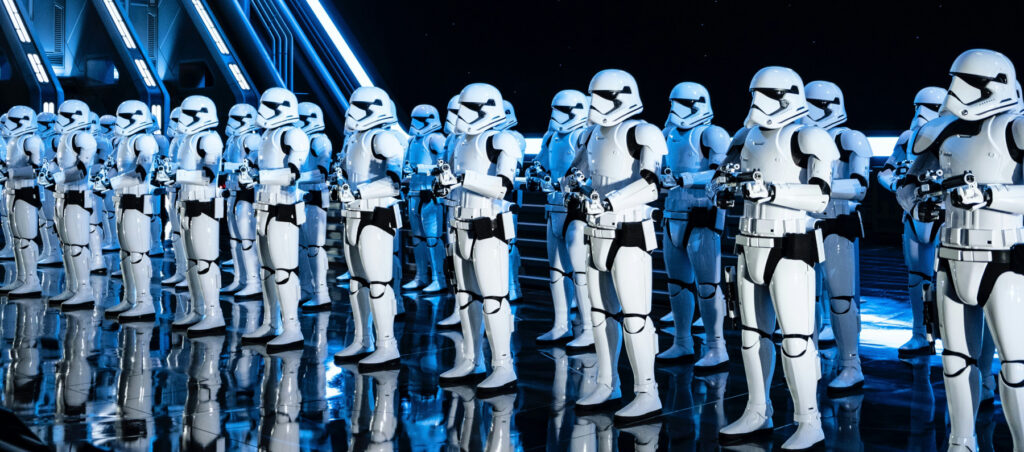
A galaxy far, far away, filled with Jedi Knights, Sith Lords, iconic spaceships, and an eternal struggle between good and evil, embodied in the Force. Originating from a series of revolutionary films, it has expanded into books, series, games, and comics.
Key Elements: The Force, lightsabers, the duality of good and evil, galactic empires and courageous rebellions.
Iconic Characters: Luke Skywalker, Darth Vader, Princess Leia, Han Solo, Obi-Wan Kenobi, Yoda.
Why It’s So Iconic: Its epic narrative, memorable characters, innovative visual design, and universal themes of hope, family, and redemption have resonated with generations, making it a global cultural phenomenon.
Where to Start: The original trilogy (Episodes IV, V, and VI) is the classic starting point.
#2 – Harry Potter

A magical world hidden from the “Muggles” (non-magical people), centered on the journey of the young wizard Harry Potter at Hogwarts, a school of witchcraft and wizardry, and his fight against the Dark Lord Voldemort.
Key Elements: Magic, wands, potions, fantastic creatures, a rich wizarding history, and the importance of friendship and love.
Iconic Characters: Harry Potter, Hermione Granger, Ron Weasley, Albus Dumbledore, Severus Snape.
Why It’s So Iconic: Its ability to transport readers and viewers to a world of wonder, the identification with the growing characters, and the themes of courage, loyalty, and the fight against prejudice.
Where to Start: The first book, “Harry Potter and the Sorcerer’s Stone” (or “Philosopher’s Stone” in the UK).
#3 – Marvel Cinematic Universe (MCU)
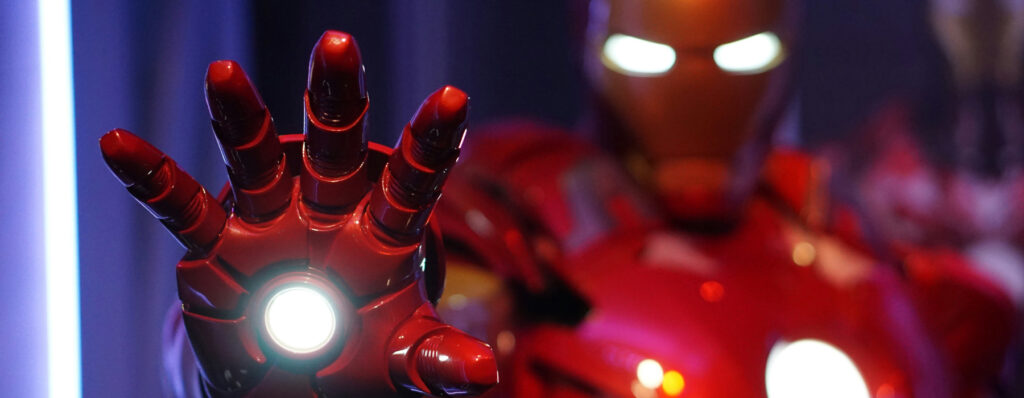
A vast interconnected tapestry of films and television series that adapt the characters and stories of Marvel Comics, culminating in epic events and superhero crossovers.
Key Elements: Superpowers, teams of heroes, cosmic threats, the exploration of social themes through superhero metaphors, and a shared universe with continuity.
Iconic Characters: Iron Man, Captain America, Spider-Man, Thor, Black Widow, Hulk.
Why It’s So Iconic: Its ambition to create a cohesive and successful shared universe in cinema, the combination of action, humor, and drama, and the development of complex and captivating characters.
Where to Start: While there are various viewing orders, “Iron Man” (2008) is the movie that started it all.
#4 – The Lord of the Rings (Tolkienverse)

Middle-earth, a richly detailed fantasy world with diverse races (elves, dwarves, hobbits, orcs), ancient magic, complex languages, and an epic journey to destroy the One Ring and defeat the Dark Lord Sauron.
Key Elements: Ancient magic, the struggle against the corruption of power, the importance of friendship and perseverance, epic landscapes, and a deep mythology.
Iconic Characters: Frodo Baggins, Gandalf, Aragorn, Legolas, Gimli, Sauron.
Why It’s So Iconic: Its depth of world-building, the complexity of its languages and backstories, and its seminal influence on modern fantasy literature.
Where to Start: The book “The Hobbit” serves as an excellent introduction before “The Fellowship of the Ring.”
#5 – Game of Thrones (A Song of Ice and Fire Universe)
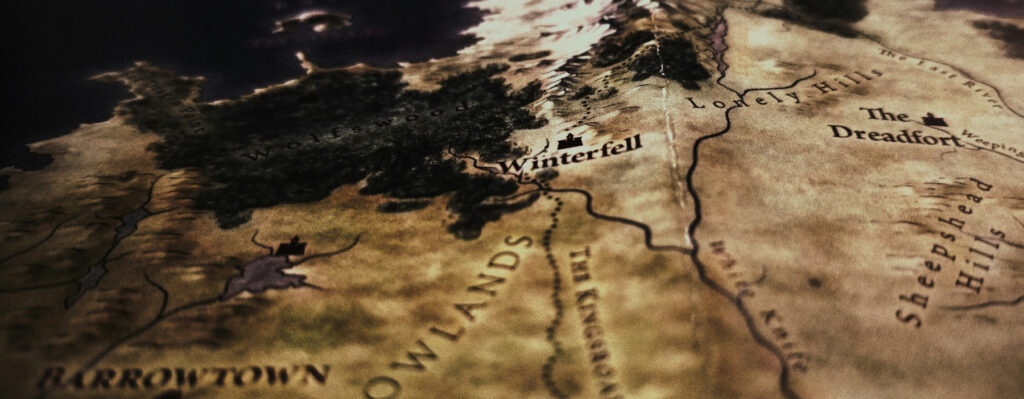
The Seven Kingdoms of Westeros, a continent where noble families fight for power through political intrigue, brutal wars, and the threat of supernatural forces beyond the Wall.
Key Elements: Complex politics, shocking twists, morally ambiguous characters, graphic violence, and fantasy elements like dragons and ancient magic.
Iconic Characters: Eddard Stark, Daenerys Targaryen, Tyrion Lannister, Jon Snow, Arya Stark.
Why It’s So Iconic: Its mature and complex narrative, the absence of perfect heroes, the realistic consequences of actions, and the creation of a ruthless and fascinating world.
Where to Start: The first book, “A Game of Thrones.”
#6 – Star Trek
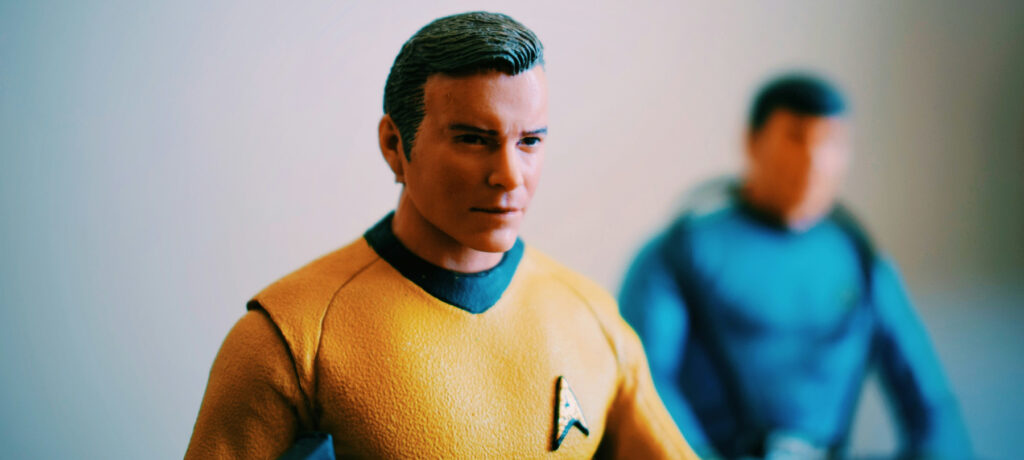
An optimistic future of humanity exploring space aboard starships of the United Federation of Planets, seeking out new life and new civilizations, with a philosophy of peaceful exploration and scientific progress.
Key Elements: Space exploration, futuristic technology (teleportation, warp drive), diverse alien species, ethical dilemmas, and the pursuit of knowledge.
Iconic Characters: Captain Kirk, Spock, Doctor McCoy, Captain Picard, Commander Riker.
Why It’s So Iconic: Its hopeful vision of the future, the exploration of social and philosophical issues through science fiction, and the creation of a rich and diverse galaxy.
Where to Start: The original series (“Star Trek: The Original Series”) or “Star Trek: The Next Generation” are great starting points, depending on preference for a more classic or modern style.
#7 – Doctor Who

The adventures of an alien Time Lord known as “The Doctor,” who travels through time and space in their sentient spaceship, the TARDIS, often accompanied by human companions, facing threats and helping those in need.
Key Elements: Time travel, regeneration (the Doctor’s body changing), iconic villains (Daleks, Cybermen), a rich temporal mythology, and a constant sense of wonder.
Iconic Characters: The Doctor (in their various incarnations), their many companions (Rose Tyler, Donna Noble, etc.).
Why It’s So Iconic: Its longevity, the ever-changing nature of the protagonist, the combination of adventure, humor, and complex science fiction elements.
Where to Start: Many fans recommend starting with the “New Series” from 2005, with Christopher Eccleston as the Ninth Doctor.
#8 – Cyberpunk (Genre and Shared Universe)

A dystopian future characterized by high technology (cybernetic implants, artificial intelligence), social decay, powerful megacorporations, and a vibrant underground culture. While various works exist, the genre shares tropes and themes.
Key Elements: Cybernetic implants, virtual reality, artificial intelligence, class struggle, the loss of humanity in the technological age, and a striking visual aesthetic.
Iconic Characters: V (from Cyberpunk 2077), Deckard (from Blade Runner), archetypal figures like the skilled hacker and the cybernetically enhanced mercenary.
Why It’s So Iconic: Its dark and prophetic vision of the future, the exploration of the implications of technology on our humanity, and its influence on various media (books, films, games).
Where to Start: William Gibson’s “Neuromancer” is considered a cornerstone of the genre, as is the film “Blade Runner.” The game “Cyberpunk 2077” also offers a modern immersion into the universe.
#9 – Foundation (Isaac Asimov’s Foundation Series Universe)

A distant future where humanity has spread across the galaxy. Psychohistorian Hari Seldon develops a mathematical theory capable of predicting the future of large populations, foreseeing the collapse of a galactic empire and establishing two Foundations to shorten a dark age.
Key Elements: Psychohistory, long-term planning, the influence of large-scale historical events, ethical dilemmas about manipulating the future, and the struggle against chaos.
Iconic Characters: Hari Seldon, Gaal Dornick, Salvor Hardin.
Why It’s So Iconic: Its exploration of complex concepts like large-scale future prediction and the impact of historical forces, influencing science fiction and strategic thinking.
Where to Start: The first book, “Foundation.”
#10 – The Call of Cthulhu (H.P. Lovecraft’s Cthulhu Mythos)
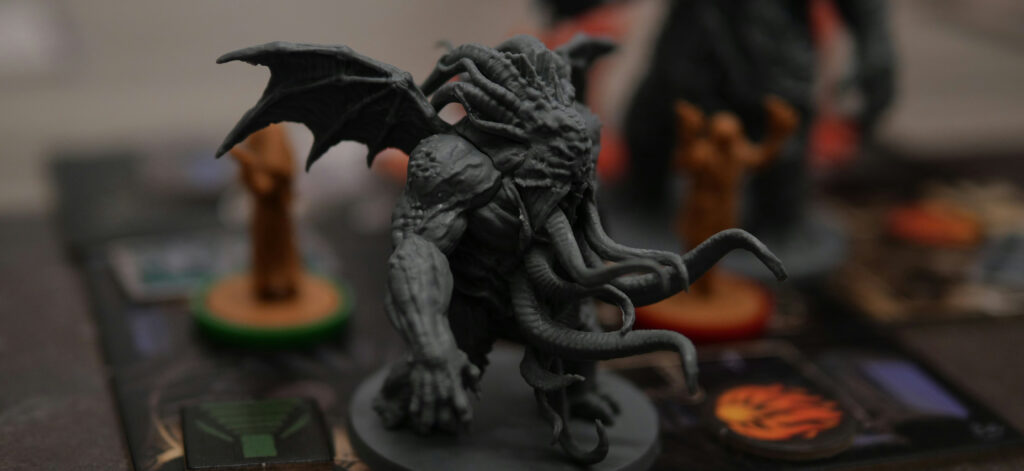
A universe of cosmic horror where ancient and powerful alien entities exist beyond human comprehension, with their secret cults threatening humanity’s sanity and existence.
Key Elements: Cosmic horror, indescribable alien entities, the fragility of human sanity in the face of the unknown, sinister cults, and forbidden knowledge.
Iconic Characters: Cthulhu, Nyarlathotep, archetypal figures of investigators and academics confronted with horror.
Why It’s So Iconic: Its unique approach to horror, focused on the fear of the unknown and humanity’s insignificance in the cosmos, influencing countless works of horror and fantasy.
Where to Start: The short story “The Call of Cthulhu” is an excellent entry point into this universe.
Beyond the Top 10: Other Nerd Universes Worth Exploring
The list of fascinating nerd universes is vast and continues to grow. Honorable mentions include the rich world of Dungeons & Dragons, the post-apocalyptic setting of Fallout, the complex mythology of Warhammer 40,000, the vibrant world of Steven Universe, and the interconnected narratives of DC Comics. Each of these universes offers its own unique stories, characters, and reasons for being beloved by the nerd community.
How to Dive Deeper into These Universes
The beauty of these universes lies in their ability to be explored across various media. You can start by reading the original books, watching the films and series, playing the video games, delving into the comics, listening to dedicated podcasts, or even attending events and conventions to connect with other fans. The journey of discovery is as rewarding as the universe itself.
Conclusion: Which Nerd Universe Has Captured Your Heart?
Nerd universes are more than just fiction; they are spaces where imagination flourishes, where we find communities, and where timeless stories continue to inspire us. We hope this journey through our top 10 has sparked your curiosity or reignited your passion for some of these incredible worlds. Now, we want to hear from you: which of these universes has already captured your heart? Which one has made you most curious to explore? Share your thoughts and experiences in the comments below!
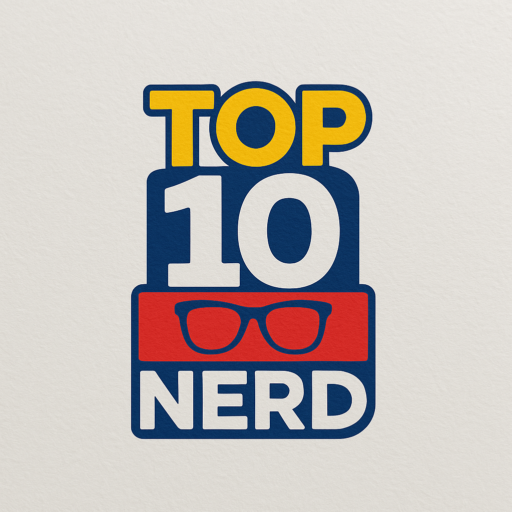

Leave a Reply